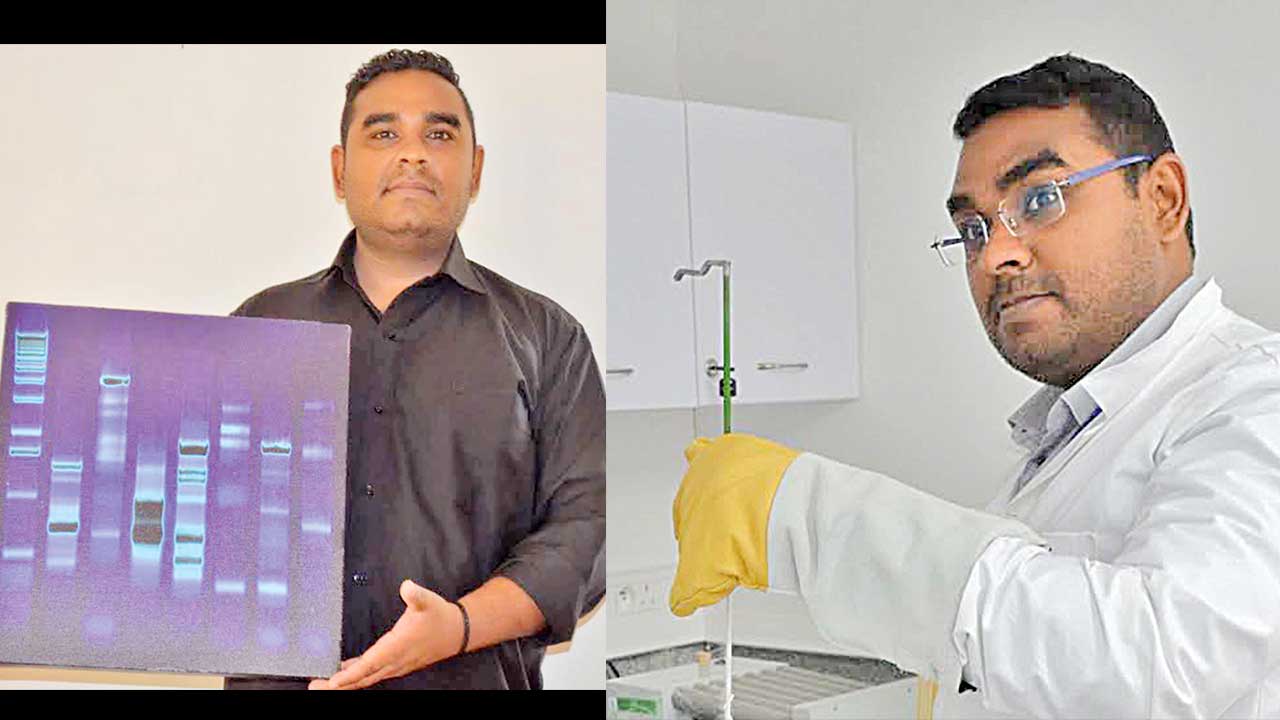
33-year old Yirajen, also known as Gavin, a PhD holder, has revolutionised the medical field with his new research. A lecturer at UTM, he makes us discover his passion for biology and his research on the immune system.
The immune system is not uncommon for us. Recently, Gavin, through his research, has brought innovation in this field. He has discovered a new type of T cells. “The aim of my PhD research was to better characterise a particular regulatory T cells in terms of the different molecular and cellular factors that govern its existence from its development to its role in modulating immune responses,” he shares.
“The immune system protects our organism against various types of exogenous (virus, bacteria, fungi, etc) and endogenous (cancer, autoimmunity) aggressions. Similarly to other biological processes, immune responses must be highly-regulated to be efficient. Defects in immune-regulation leads to life-threatening medical conditions such as chronic inflammation (for example inflammatory bowel diseases) and autoimmunity (for example, Diabetes, multiple sclerosis,). A sub-population of white blood cells known as regulatory (or suppressor) T cells play an unparalleled role in controlling immune responses. Learning how to harness the power of these regulatory T cells will eventually lead to the development of new therapies for chronic inflammatory pathologies and autoimmune diseases. However, identifying these different populations and determining their specific physiological function(s) mandates extensive research. After more than 4 four years of work, he and his team were successful in identifying a new regulatory T cell population in man,” he explains.
When quizzed about the positive changes the research has brought to human life, he replies that “identifying a novel T cell population with potent immune regulatory capacities in man is always a major breakthrough for the medical field. Indeed, there are several ongoing pioneer clinical trials using other regulatory T cells in an attempt to treat various inflammatory diseases. As such, our newly identified regulatory T cell population can in theory constitute a potential candidate for these types of cell therapy. However, we still need to conduct more research on these cells.”
 From Modest beginnings to top researcher
From Modest beginnings to top researcher
Brought up in a middle class family, Gavin and his twin brother have made their parents proud with their achievement. Gavin has dedicated his life to biology and research. It is a passionate researcher that we met. “Since I joined school I had a strong passion for biology. After my HSC, I went to France where I enrolled in a science course. Biology, especially research in the field of biology is constantly changing. We need to keep up to date with the literature and technological advances so as to be able to come up with new research ideas. This dynamic process is highly stimulating for the mind.”
The journey was not all rosy for Gavin. He had to work in order to pay for his studies. “I had to work at night and during weekends to bear the expenses of my studies. These were difficult years.” In a regional competition, he bagged a scholarship to continue with his PhD. After his studies, he returned to Mauritius.
Achievements
- Received PhD grant for best overall achievement and best dissertation project
- Received grants from L’Agence de Recherche contre le Cancer, l’Association Francoise Aupetit and L’INSERM through Request for Grant Proposals campaigns
He started his career at Centre International de Developpement Pharmaceutique (CIDP-Mauritius) in 2015. He worked as laboratory manager of the Preclinical Department and was in charge of setting up the different safety and toxicity assays for the cosmetic as well drug industry. He adds that the Preclinical laboratory is the only one in Mauritius in line with Good Laboratory Procedure, the gold standard in preclinical testing. He thus joined teaching and academia. “I have recently joined the School of Health Sciences, the latest addition to the clusters of Schools at UTM. The School is currently offering career-oriented under-graduate and post-graduate courses in health sciences.”
The next step
The passionate researcher does not want to stop here. He wants to initiate new research projects at the university with international and national collaboration. “I am willing to do more research in human diseases and help the government to come with solution for diseases like diabetes. We now need to address the physiological role(s) of these cells and their potential involvement in human diseases. It is not always necessary to depend on international research. We need to identify research “niches” specific to Mauritius so that local people benefit from it.”
Moreover, he believes that it is high time to motivate young blood to enter the science field and carry research. “Nanomedicine and Phytotechnology are new emerging research fields. So, we must surely encourage the new generation to make a career in these areas. This can be achieved through publication and documentaries that might arouse the interest of people.”
“Research is like a roller coaster ride with its thrills and its ups and downs. If you want to enjoy doing research, you should embrace it completely. Learn from your seniors, attend scientific meetings, write papers and grant proposals, pay attention to details, trust your gut instinct, be bold, believe in yourself, share your knowledge and your experience,” he advises.
Science in Mauritius
According to Gavin, science in Mauritius has been neglected as a discipline. “Unfortunately, there isn’t much information about career prospect regarding science in the country. There is a general misconception that when a person studies biology, the person has to work in laboratory or becomes doctor. It is time to see beyond the horizon. With science, there are other career prospects like sanitary science, quality assurance in food, clinical trials and biotechnology. People just need to change perspective.”
Gavin avers that from lower secondary schooling itself, students must be encouraged to study science. “Sensitising students about the importance of science in our lives is indeed essential. Once they are able to understand how science can be fun and interesting, there is no doubt that science will get the place it deserves in society.”
 J'aime
J'aime














